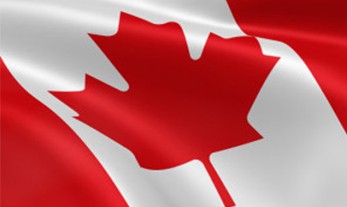Canada has become a highly sought-after destination for international students seeking a high-quality education in Canada. Its multicultural society, welcoming environment, and top-ranked universities offer numerous opportunities for personal and academic growth. According to the Canadian Bureau for International Education, Canada was the third most popular destination for international students in 2020, with over 642,000 students.
Advantages of Study in Canada for Indian Students – 2024
In this blog, we will explore the advantages of study in Canada, popular courses in Canada, and highlight some of the country’s top universities.
- High-Quality Education: Canadian universities and colleges are known for their academic standards and quality education. Canadian degrees hold international recognition and provide a strong foundation for future career prospects.
- Diverse Range of Programs: There are a vast array of study programs and courses in Canada across various fields and disciplines. Indian students can choose from engineering, business, arts, sciences, or technology programs that align with their interests and career goals.
- Research Opportunities: Canadian institutions emphasize research and innovation, providing students with opportunities to engage in groundbreaking projects. Exposure to research enhances academic and professional growth, opening doors to exciting career paths.
- Cultural Diversity and Inclusivity: Canada is a multicultural society known for its welcoming nature. Indian students can experience a diverse and inclusive environment that fosters cultural exchange and understanding. Exposure to different cultures broadens perspectives and enriches personal development.
- Safe and Peaceful Environment: Canada consistently ranks among the world’s safest countries, offering Indian students a secure and peaceful living environment. This ensures their well-being and allows them to focus on their studies without concerns about personal safety.
- Affordable Education: Compared to other popular study destinations, the cost of education in Canada is relatively affordable. This accessibility enables Indian students to pursue their educational goals without excessive financial burden.
- Work Opportunities: Canadian immigration policies allow international students to work part-time during their studies, providing valuable work experience. This can help offset living expenses and offer practical exposure to the Canadian job market. Additionally, post-graduation work permits (PGWP) offer opportunities for international students to work in Canada after completing their studies and potentially transition to permanent residency.
- Scholarships and Financial Assistance: Canadian institutions offer various scholarships, grants, and financial aid options for international students. These opportunities help alleviate financial constraints and support academic journeys.
- High Standard of Living: Canada consistently ranks among countries with the highest standards of living globally. Indian students benefit from excellent infrastructure, healthcare facilities, public services, and a high quality of life.
- Pathway to Permanent Residency: Canada provides pathways for international students to transition to permanent residency after completing their studies. The Canadian Experience Class (CEC) and Provincial Nominee Programs (PNPs) are examples of immigration programs that recognize the value of international students and offer pathways to stay and work in Canada permanently.
Also Check:
Most Popular Courses for Study in Canada
A wide range of courses in Canada are open for international students across various disciplines. Here are some popular fields of study in Canada:
- Engineering and Technology: Canadian universities are known for their strong programs in engineering and technology. Courses in computer science, electrical engineering, mechanical engineering, and software engineering are in high demand due to Canada’s thriving tech industry.
- Business and Management: Canada’s business schools are renowned for their rigorous programs in business administration, finance, marketing, and entrepreneurship. These courses in Canada equip students with the skills and knowledge to succeed in the global business landscape.
- Health Sciences: Canadian universities offer excellent programs in health sciences with a focus on research and innovation. Popular courses in Canada include medicine, nursing, pharmacy, biotechnology, and public health.
- Environmental Studies: Given Canada’s commitment to sustainability and environmental conservation, courses in Canada related to environmental studies are highly regarded. Environmental science, ecology, sustainable energy, and natural resource management are popular choices for students interested in making a positive impact on the planet.
Top 10 Universities to Study in Canada:
Canada is home to several prestigious universities known for their academic excellence, research contributions, and diverse range of programs. Here are some of the top universities in Canada:
- University of Toronto: The University of Toronto consistently ranks among the top universities in Canada and globally. It offers a wide range of programs across various disciplines, including arts and sciences, engineering, business, and medicine.
- McGill University: Located in Montreal, Quebec, McGill University is recognized as one of Canada’s leading research-intensive institutions. It has a strong academic reputation and offers programs in areas such as medicine, law, engineering, arts, and management.
- University of British Columbia (UBC): UBC is consistently ranked among the top universities in Canada and is known for its strong research programs. It offers a diverse range of programs across various disciplines, with particular strengths in science, engineering, arts, and business.
- University of Alberta: Situated in Edmonton, Alberta, the University of Alberta is recognized for its research-intensive programs and strong academic reputation. It offers a wide range of undergraduate and graduate programs in areas such as science, engineering, business, humanities, and health sciences.
- McMaster University: McMaster University, located in Hamilton, Ontario, is renowned for its innovative and research-driven approach to education. It is known for its programs in health sciences, engineering, business, humanities, and social sciences.
- University of Waterloo: The University of Waterloo is highly regarded for its cooperative education programs, combining academic learning with practical work experience. It excels in fields such as engineering, computer science, mathematics, and business.
- Western University: Located in London, Ontario, Western University is known for its strong programs in health sciences, business, engineering, and social sciences. It emphasizes interdisciplinary research and provides students with a well-rounded education.
- Queen’s University: Queen’s University, situated in Kingston, Ontario, is renowned for its strong programs in business, law, engineering, and health sciences. It offers a supportive academic environment and a vibrant campus community.
- University of Calgary: The University of Calgary, located in Calgary, Alberta, is a comprehensive research university known for its programs in engineering, business, science, health sciences, and social sciences. It has a strong focus on experiential learning and innovation.
- Dalhousie University: Dalhousie University, located in Halifax, Nova Scotia, is recognized for its research contributions and offers a wide range of programs in areas such as health sciences, law, business, engineering, and arts and social sciences.
Please note that there are several other excellent universities in Canada catering to diverse interests and academic pursuits.

Study Permit for Study in Canada:
- What is a Canada Study Permit?
A Canada study permit is a document issued by the Canadian government that allows foreign nationals to study in Canada at designated learning institutions (DLIs). A DLI is an educational institution approved by a provincial or territorial government to host international students.
- Who Needs a Canada Study Permit?
Most international students require a study permit to study in Canada. However, there are a few exceptions. If the course or program you are taking is less than six months, you do not need a study permit. Also, if you are a family member or staff of a foreign representative to Canada accredited by Global Affairs Canada, you may not need a study permit. However, you may need a temporary resident visa (TRV) or an electronic travel authorization (eTA) to enter Canada.
- How to Apply for a Canada Study Permit?
To apply for a Canada study permit, follow these steps:
Step 1: Choose the right school and program: Select a DLI and a program that aligns with your educational and career goals.
Step 2: Obtain an acceptance letter: Once you have chosen a DLI and program, obtain an acceptance letter from the DLI by meeting their admission requirements and providing necessary documents such as academic transcripts, language test scores, and a statement of purpose.
Step 3: Gather required documents: Collect all the necessary documents for your study in Canada permit application, which may vary depending on your country of residence and the DLI you have chosen. Generally, you will need a valid passport or travel document, an acceptance letter from a DLI, proof of financial support, proof of language proficiency, a police certificate, a medical exam report (if applicable), and a study plan.
Step 4: Apply for a study permit: Apply for a study permit online or in person at a visa application centre (VAC) in your country of residence. For online application, create an account on the Immigration, Refugees and Citizenship Canada (IRCC) website, fill out the application form, and upload the required documents. For an in-person application, make an appointment at the VAC and bring the required documents with you.
Step 5: Wait for a decision: After submitting your study permit application, wait for a decision from IRCC. The processing time varies depending on your country of application and the time of year. You can check the status of your application online or by contacting IRCC.
Step 6: Travel to Canada: If your study permit application is approved, you will receive a letter of introduction (LOI) from IRCC. Present this letter to the border services officer when you enter Canada. Depending on your country of residence, you may also need a TRV or eTA.
How Much Does a Canada Study Permit Cost?
The application fee for a Canada study permit is CAD $150. Additionally, you may need to pay for biometrics (fingerprints and photos) and medical exam fees.
Please note that the information provided is based on general guidelines, and it is recommended to consult the official website of Immigration, Refugees and Citizenship Canada (IRCC) for the most up-to-date and accurate information on study permit applications and requirements.
EdElevate’s expert guidance
Want to get started on your journey to your favourite university for study in Canada?
Our expert counsellors at EdElevate will guide you and help you throughout your application process with our unique offering of customised admission mentoring based on your interests, with coverage of the best colleges in every discipline. Right from choosing the best study abroad option for you to mentor you, to building a strong profile, we offer a variety of services to assist students in realising their dream of studying abroad.
Apart from offering mentorship to students, we provide assistance in crucial admission processes including shortlisting universities based on the student’s unique profile and area of interest, essay ideation and brainstorming, essay review, reference letter and resume reviews, interview preparation sessions, and more.
With all of these advantages, EdElevate is the greatest place for you to join and work toward your dream of studying abroad and establishing a successful profession.
Attend a Discovery session at EdElevate today to chart out your road to success!




